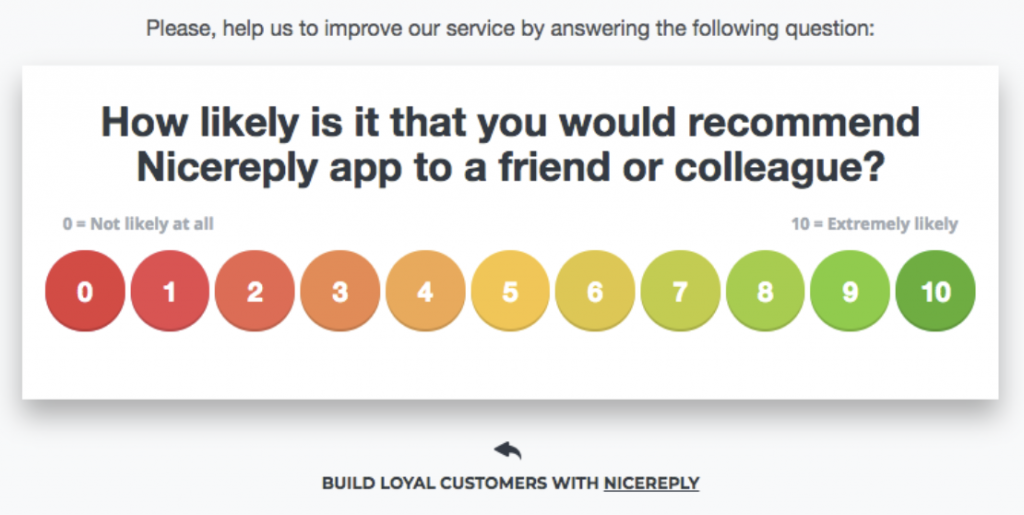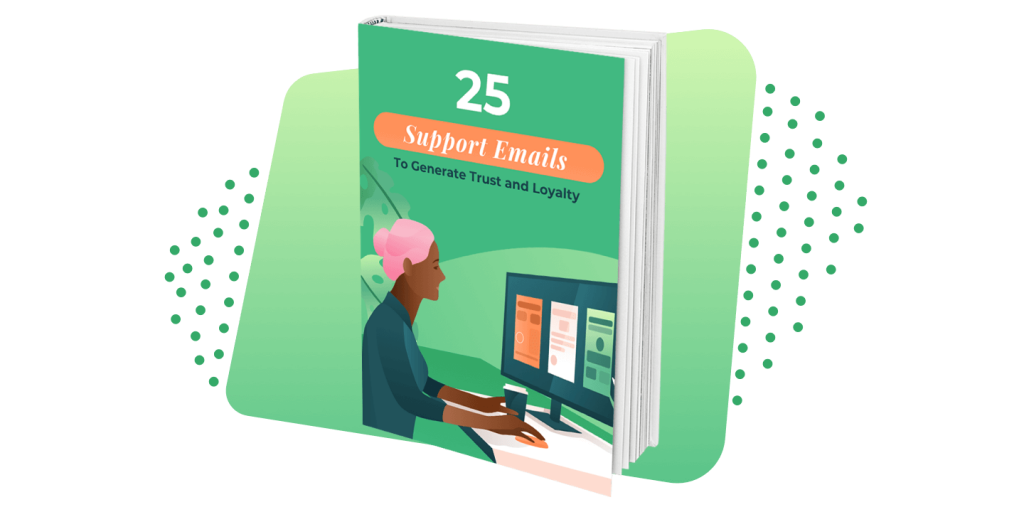Instead of waiting for customers to run into trouble and get in touch, find a way to connect with them before the problems happen.
When it comes to customer service, you can either wait for customers to come to you with a problem or… you can make the first move with proactive customer service.
Proactive customer service involves any action a company takes to improve the customer service experience before the customer contacts them. There are a lot of ways to help customers proactively, including educational webinars, in-app notifications, knowledge base articles, and more. In this article, we’ll focus on reach-out email templates for proactive customer service.

The benefits of moving from reactive to proactive service are huge. Instead of trying to calm down and help a frustrated customer, you’re pre-emptively helping someone who hasn’t even run into trouble yet. Customers will feel that your company is capable and on top of it. They are also more receptive to upselling and suggestions. Plus, by proactively contacting a wider audience, you’ll be able to source feedback from your entire customer base (not just the ones that write into customer service).
Proactive emails are a great way to show customers you care. But messaging customers out of the blue, and often without a good reason, can feel awkward. If you’re struggling with how to reach out and say “hey”, we’ve got you covered. Here are 6 reach-out email templates you can adapt to your own use.
 A one-month check-in
A one-month check-in
A timely update is a great reason to connect with customers. Whether it’s a week, a month, or a year, you can set up these milestone emails to automatically send out from your CRM. Just make sure that the reply-to email is set to a real person so the customer feels confident their response will be read.
“Hi [Customer]!
It’s been one amazing month since you signed up with [Company], and we want to take a moment to say how much we appreciate your business. If there is anything I can do to improve your experience, just click reply to this email and let me know. My favorite part of my job is hearing from our newest customers, so please get in touch.
Name
Position”
 Add a Survey
Add a Survey
Surveys are an excellent way to connect with customers, especially when they can respond with only one-click. Use a customer satisfaction survey to get quick feedback on whether your customers are feeling satisfied with your service, or try an NPS survey to see how loyal your customers are to your brand. Plus, you can always invite customers to reply to the email to give more feedback.
“Hey there [Customer],
We really wanna know how we’re doing. It will only take you one click:
How likely are you to recommend [Company] to your friends or family?
 If there’s anything we could be doing better, just reply to this email with your suggestions. We’d love to hear from you.
If there’s anything we could be doing better, just reply to this email with your suggestions. We’d love to hear from you.
Thanks,
[Company]”
 Follow-up after a conversation
Follow-up after a conversation
Whether your last conversation went well, or left room for improvement, following up is always a good idea. These proactive emails should be more personalized to the individual customer and their previous conversation.
“Hi [Customer],
I wanted to check in and see how everything was going after our conversation on Monday. If anything else has come up, I’m always here to help! Just reply to this email and the response will go directly to me.
Thanks,
[Agent]”
 Couldn’t help but notice…
Couldn’t help but notice…
Proactive emails offer an opportunity to target customers who have specific needs or use-cases. By zero-ing in on how they use your product, you can offer helpful suggestions and your email will feel hyper relevant to them. This is a great way to build a closer connection.
“Hi [customer]!
I couldn’t help but notice how thoroughly you use our reporting feature each month. You’re one of our most prolific report creators! How have you been finding the process? We’d love to hear how it’s going.
I also wanted to point out our Teams feature. From the looks of it, you haven’t used it yet, but it could be a great way to share those reports with others in the company. You can find more information here:
Always here to help!
[Agent]”
 Introduce yourself
Introduce yourself
If you’re newer to the company, take the time to reach out to customers and check in. Not only will they feel a personal connection with you, but you’ll also have the opportunity to gather more intel on how real customers experience your products and services.
“Hi there!
My name is Sarah, and I’m the new customer service manager for [Company]. In the last two months, I’ve been learning a lot about our product, but I want to learn more about you. I’d love it if you could take a couple of minutes to reply to this email with the most pressing piece of feedback you have for our company. I promise I’ll read every response I get and use your insight to help us improve.
Thanks!
Sarah
Head of Customer Service”
 Bug or service issue notifications
Bug or service issue notifications
If you notice that a customer has run into a bug, or there is the potential for a service disruption, you can send a message before they contact you. Proactively reaching out to customers communicates the message that you’re on top of it. Customers appreciate the heads-up, and if they didn’t even notice in the first place, they’ll still feel that you have their backs.
“Dear [customer],
Oops! We just got a notification that you may have encountered a bug in the system when you tried to update your account information today. Our team has logged the error and will get to work squashing that issue ASAP.
In the meantime – can I help you update your profile? Let me know how we can help, and I’ll be happy to assist.
Thanks,
[Agent]”
 Find a way to build better customer connections
Find a way to build better customer connections
Instead of waiting for customers to run into trouble and get in touch, find a way to connect with them before the problems happen. You’ll build a good relationship, so they know they can count on you when trouble strikes. Use these 6 reach-out email templates and you might even be able to teach them a thing or two in the meantime!






